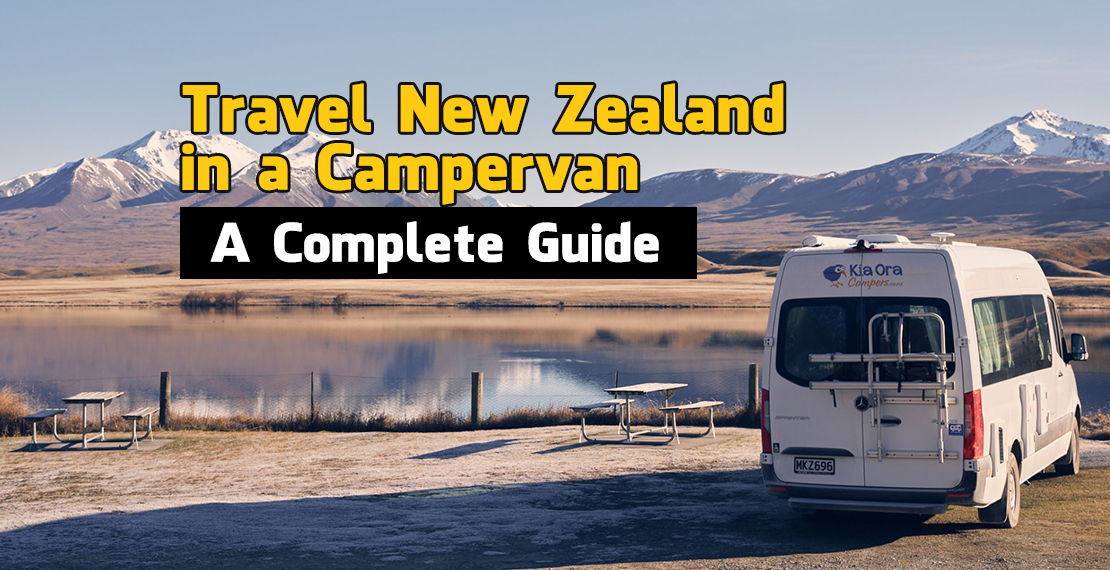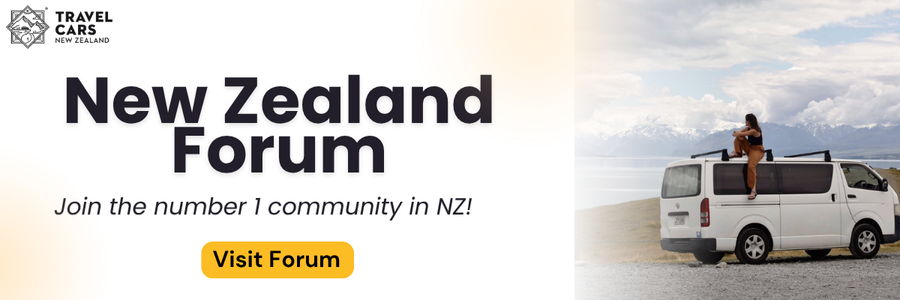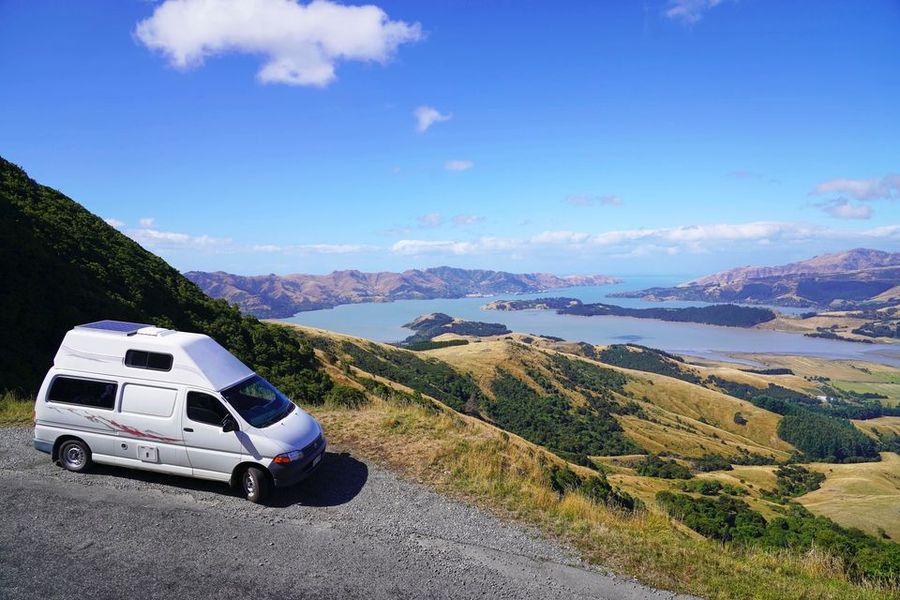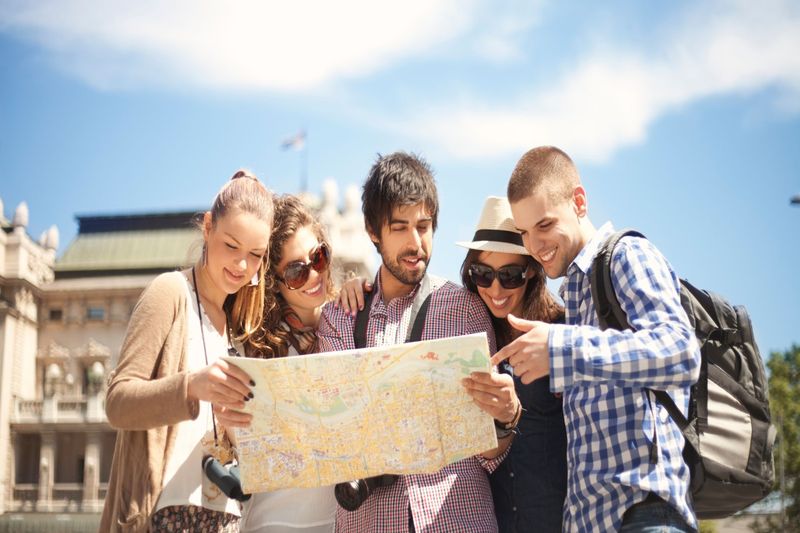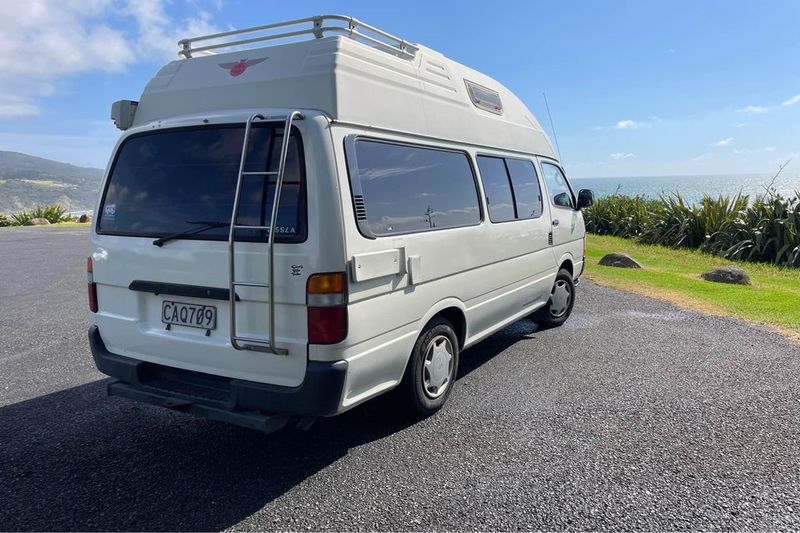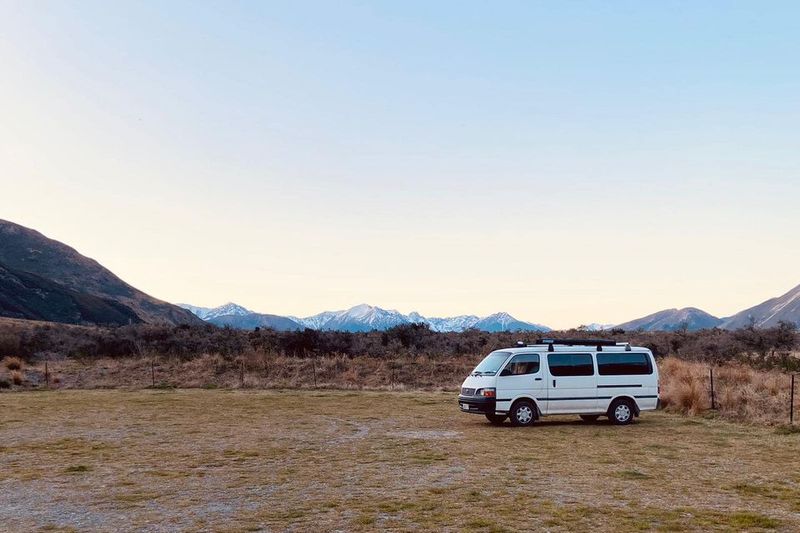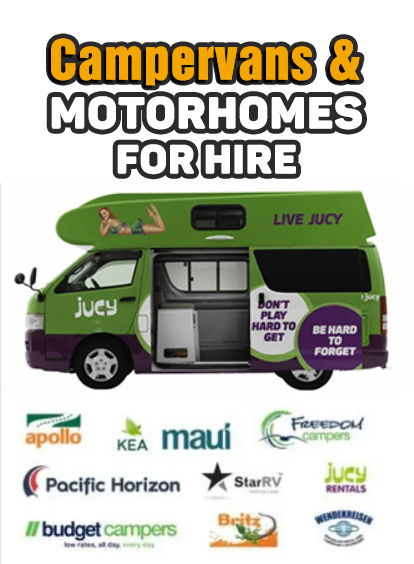Welcome to a New Zealand travel guide for those looking to explore this amazing country by campervan.
- In this article, we will explain step-by-step what you should do before starting your trip, from the moment you need to pick your ideal wheels to different insights about the numerous places you should visit during your stay.
Let’s check them out!
1. Choosing The Right Campervan
Picking the right campervan for your trip is essential; you must consider the following factors:
💰 Price range: As a starting point, you must know how much you can afford to spend when buying a campervan. If renting, then calculate the days and the total cost.
🚐 Ideal size of the campervan: This will depend on how many people you plan your trip with. Also, consider that the bigger the campervan is, the higher the cost of moving around.
⚙ Mechanical condition: Make sure the car is in great shape for driving thousands of km; make a mechanical check before buying. If renting, check it out before you drive away and take photos of the interior and exterior so no misunderstandings with the hiring company will occur later.
- For more information about buying and renting, you can look at the following guides we have created for each purpose:
✅ 12 Tips for Buying a Campervan in New Zealand
✅ 17 Best Tips for Renting a Campervan in New Zealand
2. The Preparation Checklist
It is recommended that you follow some simple steps before arriving in New Zealand to guarantee that everything goes as it should on your arrival and throughout your trip.
1⃣ Research
Know New Zealand’s driving rules, what driving conditions you can expect during your trip, camping regulations and weather.
At the same time, you can also plan your route and decide which attractions, activities, and spots you would like to visit.
While it’s great to give priority to the most popular and interesting places, remember to leave room for flexibility.
Consider other options as alternatives on each destination, such as short trips, small hikes, or certain activities that won’t take too long to do. This flexibility allows you to relax and be open to new experiences.
2⃣ Book Your Campervan
When hiring a campervan or motorhome, it is better to do with time in advance, guaranteeing a good deal regarding vehicle availability and price.
🔍 You can do a complete research by checking our rentals tool here: TCNZ | Campervan & Motorhome Rentals
3⃣ Documentation
Ensure you have all necessary documentation, including a valid passport, driver’s license (an international driver’s permit if required), and travel insurance.
Also, keep copies of your campervan rental agreement, travel itinerary, and accommodation bookings.
4⃣ Setting Up a Budget
Create a detailed budget for your trip, accounting for major expenses like flights, campervan rental, fuel, food, activities, and accommodation.
Include a contingency fund for unexpected expenses.
5⃣ Medical Supplies
Pack a basic medical kit with essentials such as bandages, antiseptic wipes, pain relievers, prescription medications, insect repellent, and any other personal medical supplies.
6⃣ Communication
To stay connected, consider purchasing a local SIM card or an international roaming plan.
Reliable communication is essential for navigation, emergencies, and keeping in touch with family and friends.
7⃣ Emergency Contacts
Prepare a list of emergency contacts, including local emergency services, your country’s embassy or consulate, your travel insurance provider, and close family members or friends.
3. Planning Your Route
Planning your route is essential to ensuring a successful and enjoyable trip to New Zealand.
3.1. Must-See Locations
New Zealand boasts a variety of must-visit spots. Start by highlighting the major cities and attractions:
- Auckland: A bustling city known for its vibrant culture and the iconic Sky Tower.
- Rotorua: Renowned for geothermal activity and rich Maori heritage.
- Wellington: The capital city, famous for its arts scene and the Te Papa museum.
- Queenstown: The adventure hub offering activities like bungee jumping and skiing.
- Milford Sound: Famous for its stunning fjords and scenic cruises.
- Abel Tasman National Park: Known for beautiful beaches and walking trails.
3.2. Seasonal Activities
Each season offers unique experiences:
- Summer (December to February): Perfect for beach activities, hiking, and outdoor adventures.
- Autumn (March to May): Great for vineyard tours and enjoying milder weather.
- Winter (June to August): Ideal for skiing and snowboarding in the South Island.
- Spring (September to November): Excellent for seeing blooming gardens with fewer crowds.
4. Plan Accommodations
4.1. Campsites and Holiday Parks
If traveling by campervan, book your campsites ahead of time, especially during peak seasons. Look for holiday parks and DOC (Department of Conservation) campsites that offer necessary amenities.
4.2. Alternative Accommodations
Consider mixing in stays at hostels, motels, or boutique lodges. This provides a break from campervan life and offers more comfort and amenities.
5. Responsible Travel Practices
Travel responsibly in New Zealand with these guidelines:
5.1. Respect Nature
- Leave No Trace: Carry out all rubbish and avoid disturbing wildlife.
- Stay on Trails: Protect fragile ecosystems by staying on marked paths.
- Conserve Water and Energy: Use resources wisely, especially in remote areas.
5.2. Support Local Communities
- Buy Local: Support local businesses by purchasing goods and services.
- Respect Cultures: Learn about and respect Maori traditions and local customs.
- Be Polite: Show kindness and respect to locals and fellow travelers.
5.3. Minimize Your Footprint
- Reduce Waste: Use reusable items like water bottles and bags.
- Recycle: Dispose of waste properly and use recycling facilities.
- Travel Light: Pack only what you need to reduce fuel consumption.
5.4. Wildlife Protection
- Observe from a Distance: Keep a safe distance from animals.
- Do Not Feed Wildlife: Feeding animals can harm their health and alter their behavior.
- Follow Guidelines: Adhere to rules in wildlife areas and marine reserves.
5.5. Safe and Responsible Camping
- Use Designated Campsites: Camp only in designated areas to minimize environmental impact.
- Follow Fire Regulations: Adhere to fire bans and regulations to prevent wildfires.
- Dispose of Waste Properly: Use facilities provided and carry out all rubbish.
6. Insurance Matters
Insurance is crucial for a worry-free trip to New Zealand. Here’s what you need to know:
6.1. Travel Insurance
- Medical Coverage: Ensure your travel insurance includes comprehensive medical coverage for emergencies, including hospitalization and evacuation.
- Trip Cancellation: Protection against unexpected cancellations or interruptions, such as flight cancellations or personal emergencies.
- Lost or Stolen Belongings: Coverage for lost or stolen baggage and personal belongings, including electronics and travel documents.
- Travel Assistance: Access to 24/7 emergency assistance for medical emergencies, travel advice, and support services.
6.2. Vehicle Insurance
- Rental Insurance: Consider purchasing insurance offered by rental car companies to cover damages or theft of the vehicle.
- Roadside Assistance: Check if your vehicle insurance includes roadside assistance for breakdowns, flat tires, or accidents.
🚘 For more information about car insurance in New Zealand, you can check the following article: Car Insurance in New Zealand



